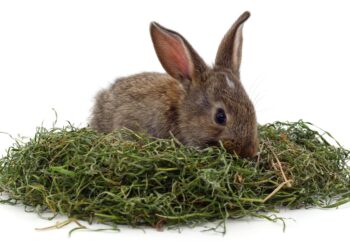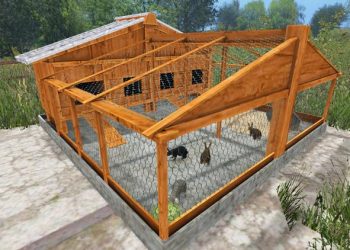Maggots disease in the rabbit As a Para veterinary Veterinary Assistant, you experience a lot in the veterinary practice. There are happy moments, but also moments that are heavy and sad. As a para veterinary, you have to be able to respond well to every situation.
Reading suggestions; Caring For Rabbits In Warm Weather
This of course towards the animal, but also towards the owner. You often see situations of ignorance in practice. As a result, a favorite pet may have to be put to sleep. In my article, I will describe such a situation. Maggots disease in the rabbit
In practice
A pet owner calls the practice with the announcement that the rabbit is not well. The animal no longer eats, seems lethargic, and is no longer itself. Since a rabbit has to eat 24 hours a day because otherwise his intestines will come to a standstill and the animal can die, the decision is quickly made to let the owner come with the sick rabbit.
Once the owner has arrived, it appears that the bunny has deteriorated even further. “How is that possible?”, they ask. “Nothing happened yesterday.” When the vet has finished with his patient, the owner with the rabbit is called in.
While telling the story, the owner removes the rabbit from its transport cage and places it on the treatment table. As the rabbit is removed from its hutch, a foul odor of feces and meat escapes. The vet pulls a face of familiarity. When he picks up the rabbit to look at the rabbit’s back, his suspicions become reality.
The rabbit’s back is covered in feces and very wet with urine. “Gosh,” says the owner. “I hadn’t seen that.” The vet cleans the back and sees that there are all maggots on the rabbit. Further inspection reveals that the maggots have made a large wound and are now eating their way inside. The only solution appears to be euthanasia.
How does the fly work
This situation is unfortunately very common. We encounter this situation especially in the summer period when the weather is warm. The Green Flesh Fly alias Lucilia sericata is most active during this period. The fly is attracted to the air of feces and urine. The fly then lays its eggs around the rabbit’s anus.
The maggots that come out of this immediately start eating their way through the rabbit’s skin further inside. This is of course very painful for a rabbit. They wreak havoc that will cause a rabbit to die painfully if not intervened in time.
What to watch out for
- Don’t let a rabbit become overweight. Regular weighing of a rabbit can help to intervene quickly if the weight suddenly decreases sharply. In addition, if a rabbit is too heavy, it cannot clean itself well, so poop, etc. can stick to its backside where flies can come.
- Lift the rabbit daily to check that the rabbit does not have a dirty bottom. If this is the case, clean it carefully with some lukewarm water and then dry the rabbit well.
- Regularly remove dirty/wet spots from the loft. This also ensures that flies are less attracted to the pleasant air for them.
- If you see flies, the rabbit hutch (if it is outside, for example) can be covered with fly netting.
- If the rabbit changes in behavior such as being persistently lethargic and drowsy and not wanting to eat or drink, take the animal to a vet in time. Better to prevent than to cure.
- If you find maggots in the hutch or on the rabbit, check the rabbit carefully. If you find maggots on the rabbit, go to the vet immediately. The doctor will then see if he can remove the maggots present and whether the animal should be put on antibiotics. Of course, clean the loft well to remove the maggots.
Finally
If you take the above points into consideration and carry out this with your rabbit, the chance is many times greater than your rabbit can be treated in time. If you have any questions or are not sure about anything, please call your vet. The assistants or doctors will be happy to help you. Better prevention than cure!









